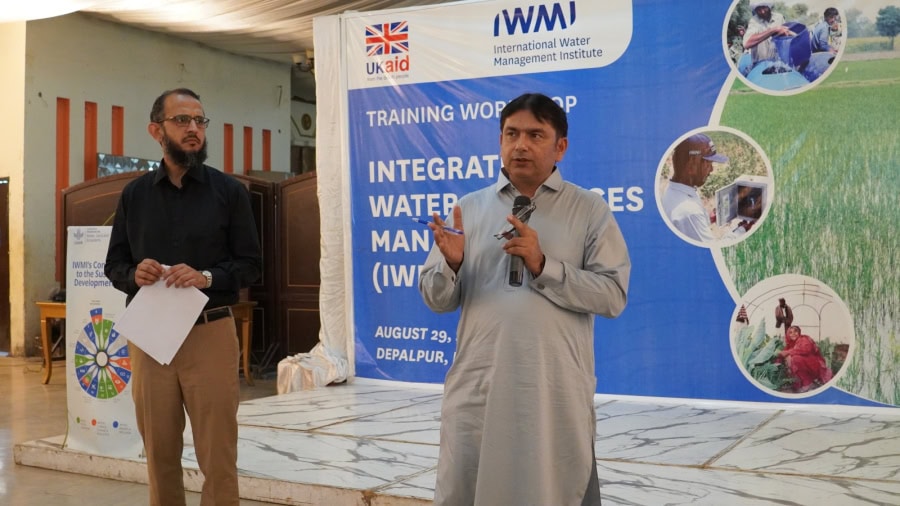Climate change is posing serious threats to food and water security in Pakistan.
Speakers at a workshop have stressed the need to improve water governance by using scientific data and adopting sustainable water resource management to cope with existing and future challenges.
The International Water Management Institute (IWMI) Pakistan organised a training workshop on the basic concepts and principles of ‘Integrated Water Resources Management (IWRM)’ in Okara district, under the UKaid-funded Water Resource Accountability in Pakistan (WRAP) Programme Component 1: Climate Resilient Solutions for Improving Water Governance (CRS-IWaG).
This workshop was organized to help build a cadre of mid-career professionals and government officials at the district and tehsil level to develop their skills for better water allocation practices, through the Integrated Water Resource Management (IWRM) approach.
Dr. Jehanzeb Masud Cheema, Researcher – Water Resources Management, IWMI Pakistan, gave an overview of the WRAP programme.
“The goal is to improve water resources management and governance in the face of climate change and it is evident as the region is facing severe flooding nowadays.”
He further added that “Conductivity, Temperature and Depth (CTD) divers installed at various locations of Okara district are providing near real-time information on groundwater quality and quantity that will help improve decision making on water governance.”
Engr. Saeed Ullah Alvi, Deputy Director, OFWM District Okara stated that “Climate change is causing water and food insecurity across the country. We are working with IWMI through Water User Associations in the district by sharing the technology and scientific research and tools to improve irrigation demand management.”
Dr Abdur Rehman Cheema, Regional Researcher – Water Governance and Institutional Specialist, IWMI Pakistan, introduced the basic principles of IWRM and the Punjab Water Act 2019. He said that there is a need to take a broader view of water availability and its use for various purposes keeping in view the principles of integrated water resources management.
“The Punjab Water Act is one of the best examples, as it lays out pathways to improve water governance and sustainable water resources management. The hindrances to its implementation must be removed sooner than later.”
Hafsa Aeman, Senior Research Officer – Geoinformatics, IWMI Pakistan, shared the importance of decision-making based on real-time scientific data and water assessments.
Kanwal Waqar, Gender and Youth Specialist, IWMI Pakistan, highlighted the importance of Gender Equality and Social Inclusion (GESI) in water resources management.
Mubashir Ali, Deputy Director, WRZ said, “Future water allocation will need to respond to climate-driven water shortages. The Integrated Water Resources Management approach, as advocated by IWMI today, is essential for ensuring climate resilience in Pakistan.”










